Don't Bet on Blondes

Brief Synopsis
Cast & Crew
Robert Florey
Warren William
Claire Dodd
Guy Kibbee
William Gargan
Vince Barnett
Film Details
Technical Specs

Synopsis
Bookie Odds Owen loses a bet to lawyer T. Everett Markham when Markham dopes his race horse. Disgusted by the dishonesty surrounding gambling, Odds decides to get out of the field and open an insurance business. His company insures everything from the birth of twins to the voice of a champion husband caller. He insures Col. Youngblood, the father of Broadway star Marilyn Young, against her marrying within the next three years. Although Odds does not know it, Markham inspired Youngblood to take out the policy. Because he is in love with Marilyn, he hopes to get rid of her rivals and get back at Odds at the same time. To avoid paying Youngblood, Odds discourages each man that Marilyn dates more than three times, while starting to date her himself. As a surprise, Marilyn meets Odds at his office, where she sees her father making a payment. She gets her father drunk and wheedles the truth out of him. Convinced that Odds is only courting her to avoid paying the insurance, she decides to make him fall in love with her. When he does, she tells him she knows everything and announces her engagement to Markham. Gloating, Markham invites Odds to the wedding. Youngblood begs Odds to stop Marilyn from marrying Markham, so Odds arranges for him to be caught in a traffic jam and he marries Marilyn himself. He has lost his insurance money, but gained a wife.

Director

Robert Florey
Cast

Warren William

Claire Dodd

Guy Kibbee
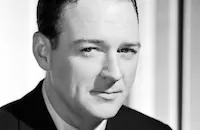
William Gargan

Vince Barnett
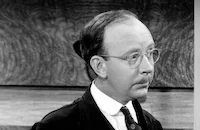
Hobart Cavanaugh

Clay Clement

Errol Flynn
Spencer Charters
Walter Byron
Eddie Shubert
Jack Norton
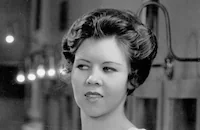
Mary Treen

Maude Eburne
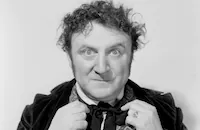
Herman Bing

Joseph Crehan
Cyril Ring
Jack Kenny
Harry Seymour
Bob Montgomery
H. Dickinson
Tammany Young
Sam Hayes
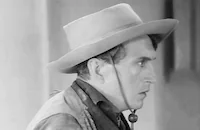
Paul Fix
Ralph Bushman
Ferdinand Schumann-heink
George Chandler
Grace Hale
Andre Cheron
Marc Lawrence
Ben F. Hendricks
Constantine Romanoff
Jack Low
Jack Pennick
Frank Moran
Jack H. Richardson
George H. Reed
Milton Kibbee
Florence Fair
Buddy Williams
Winter Hall
Pat Somerset
Daisy Bufford

George Meeker
Harrison Green
Roger Gray
Selmer Jackson
Elsa Peterson
Crew

Film Details
Technical Specs

Articles
Marc Lawrence (1910-2005)
Born Max Goldsmith on February 17, 1910, in the Bronx, Lawrence had his heart set on a career in drama right out of high school. He enrolled at City College of New York to study theatre, and in 1930, he worked under famed stage actress Eva Le Gallienne. Anxious for a career in movies, Lawrence moved to Hollywood in 1932 and found work immediately as a contract player with Warner Bros. (an ideal studio for the actor since they specialized in crime dramas). He was cast as a heavy in his first film, If I Had a Million (1932). Although his first few parts were uncredited, Lawrence's roles grew more prominent: a sinister henchman in the Paul Muni vehicle in Dr. Socrates (1935); a conniving convict aiding Pat O'Brien in San Quentin (1937); a menacing thug stalking Dorothy Lamour in Johnny Apollo (1940); the shrewdly observant chauffeur in Alan Ladd's breakthrough hit This Gun For Hire (1942); and one of his most memorable roles as Ziggy, a fedora wearing mobster in the Bogart-Bacall noir classic Key Largo (1948).
Lawrence, when given the opportunity, could play against type: as the prosecuting attorney challenging Tyrone Power in Brigham Young (1940); a noble aristocrat in the Greer Garson-Walter Pidgeon period opus Blossoms in the Dust; and most impressively, as a deaf mute simpleton in the rustic drama The Shepherd of the Hills (both 1941). Better still was Lawrence's skill at comedy, where his deadpan toughness worked terrifically as a straight man against the likes of Joe E. Brown in Beware Spooks (1939); Abbott and Costello in Hit the Ice (1943); Penny Singleton in Life with Blondie (1945); and Bob Hope in My Favorite Spy (1951).
After that, Lawrence's career took a turn downward spin when he was labeled a communist sympathizer during the Hollywood witch hunts of the early '50s. He was exiled in Europe for a spell (1951-59), and when he came back, the film industry turned a blind eye to him, but television overcompensated for that. Here he played effective villains (what else?) in a series of crime caper programs: Peter Gunn, Johnny Staccato, The Untouchables, Richard Diamond, Private Detective; and eventually made a welcome return to the big screen as a returning exiled gangster in William Asher's underrated mob thriller Johnny Cool (1963).
It wasn't long before Lawrence found himself back in the fray playing in some big box-office hits over the next two decades: Diamonds Are Forever (1971), The Man with the Golden Gun (1974), Marathon Man (1976), Foul Play (1978); and The Big Easy (1987). Sure he was cast as a gangster, but nobody could play a rough and tumble mob boss with more style or conviction.
Interestingly, one of his finest performances in recent years was in television, as a severely ill old man unwilling to accept his fate in a fourth season episode of ER (1997-98). His last screen role was just two years ago, as a nimble minded VP in Looney Tunes: Back in Action (2003).
In 1991, Lawrence published a memoir about his venerable career, Long Time No See: Confessions of a Hollywood Gangster that received much critical acclaim. He has also developed a cult following due to his appearances in such offbeat items as From Dusk to Dawn and Pigs aka Daddy's Deadly Darling, the 1972 horror film he directed and starred in with his daughter Toni. He is survived by his wife, Alicia; two children from a previous marriage, Toni and Michael; and a stepdaughter Marina.
by Michael T. Toole

Marc Lawrence (1910-2005)
Quotes
Trivia
Notes
The film's working title was Not on Your Life. According to modern sources, Dolores Del Rio was to play the role of "Marilyn," but backed out the day before shooting was to begin.















